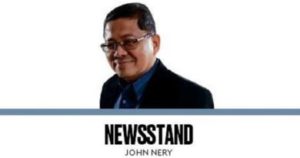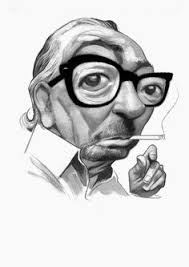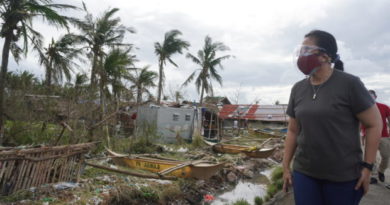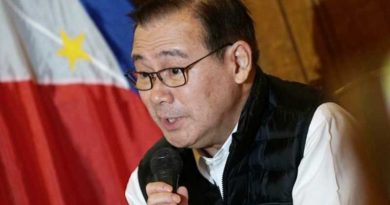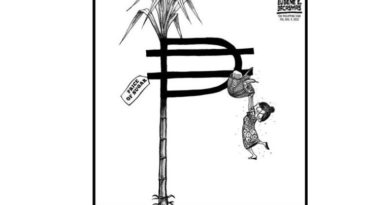OP ED COLUMN: NEWSSTAND- Turning the law into a weapon By: John Nery
The best definition of “rule of law” I know is a living concept. Since 2018, I have heard the magisterial Bill Neukom, founder of the World Justice Project (WJP), define rule of law many times, and while the fundamental insight remains the same, each time I hear him I find that he has teased a new nuance, or stressed an unsung element.
WJP defines rule of law as a durable system — consisting of laws, institutions, and community commitment — that gives life to four universal principles: accountability, just laws, open government, and impartial dispute resolution. The last time I heard Bill talk on the rule of law was last November; that time, he emphasized the “cultural” cast of the commitment that the community must offer, put in practice. He meant, if I understood him correctly, that a community’s norms help shape that particular community’s responsiveness to the four principles, and help determine whether rule of law in that community would endure (or not). Bill quoted the great South African jurist Arthur Chaskalson: “Unless it’s cultural, it’s not rule of law.”
(Disclosure: It is my privilege to serve on the WJP board.)
In the Philippines, the rule of law, precisely as a system, has been under systematic attack from the Duterte administration since Rodrigo Duterte was elected president — but many of us did not know it then. I do not mean to say that the killing of thousands of “drug personalities,” as the Orwellian language of the Philippine bureaucracy described those suspected of either trading in or merely consuming illegal drugs, failed to move the general public. The same surveys that show President Duterte enjoying record high ratings or solid support for his signature campaign, the misleadingly labeled “war on drugs,” also show that overwhelming majorities of voting-age Filipinos want suspects to be arrested, not killed; fear they or someone they know will become the next victim of extrajudicial killings; disbelieve the police when the police say they killed a suspected drug personality because he fought back.
.
ADS by:
Memento Maxima Digital Marketing

– SPACE RESERVE FOR YOUR ADVERTISEMENT –

This undercurrent of anxiety, if not outright fear, has been obscured by the main narrative of a popular president prosecuting a popular “war.”
What I mean by “many of us not knowing then,” however, is that we did not realize early enough that the assault on the rule of law was an attack on the entire system. It was not just the humanitarian catastrophe that was, and is, the EJK killing spree. It was also the corruption of the police force.
The rule of law is turned into a weapon against a country’s citizens when the chief of the Philippine National Police, himself a lawyer, orders the arrest of anyone caught vaping in public, merely because President Duterte said so. Asked last November for the legal basis for the arrest, PNP Chief Archie Gamboa admitted that there was none. The arrests, and there were many, were simply “Just to implement the directive of the President. Under the police powers of the state you can do that,” he told Rambo Talabong of Rappler. The result was a true spectacle: Many arrested, then immediately released because there was no legal basis to make the arrest in the first place.
But it wasn’t just the corruption of the police; it was also the capture of the judiciary, starting with the Supreme Court. The incumbent chief justice was the ponente of the cursed, incoherent decision to allow the burial of the remains of the late dictator Ferdinand Marcos in the National Heroes’ Cemetery in 2016; on hindsight, we can understand that decision as an audition piece, for the high honor of chief justiceship. But the Duterte Court disgraced itself in many other ways: the illogical decisions to allow martial law in all of Mindanao, even though the government’s chief lawyer could not definitively state what additional legal effects martial rule would allow; the ouster of Chief Justice Maria Lourdes Sereno, an impeachable official, not through impeachment but through an absurd quo warranto proceeding; and so on, ad nauseam.
But it wasn’t just the courts; it was also the reshaping of the culture that permeates the administration of justice in the Philippines. When the President of the Philippines pronounces on national television that (to give only one of many unfortunate examples) the police can kill anyone and he will protect them no matter what, the nation’s capacity to create and maintain a durable system of accountability and justice becomes corroded, then brittle, and then, finally, ready to collapse.
From a nation of martyrs, we are turning into a country of killers.
* * *
De La Salle University is hosting an international conference on lawfare, or the weaponization of the rule of law, on Friday, Feb. 21.
[On Twitter: @jnery_newsstand, email: [email protected]]
ADS by:
Memento Maxima Digital Marketing

– SPACE RESERVE FOR YOUR ADVERTISEMENT –

.
THE EDITOR
All photographs, news, editorials, opinions, information, data, others have been taken from the Internet ..aseanews.net | [email protected]


